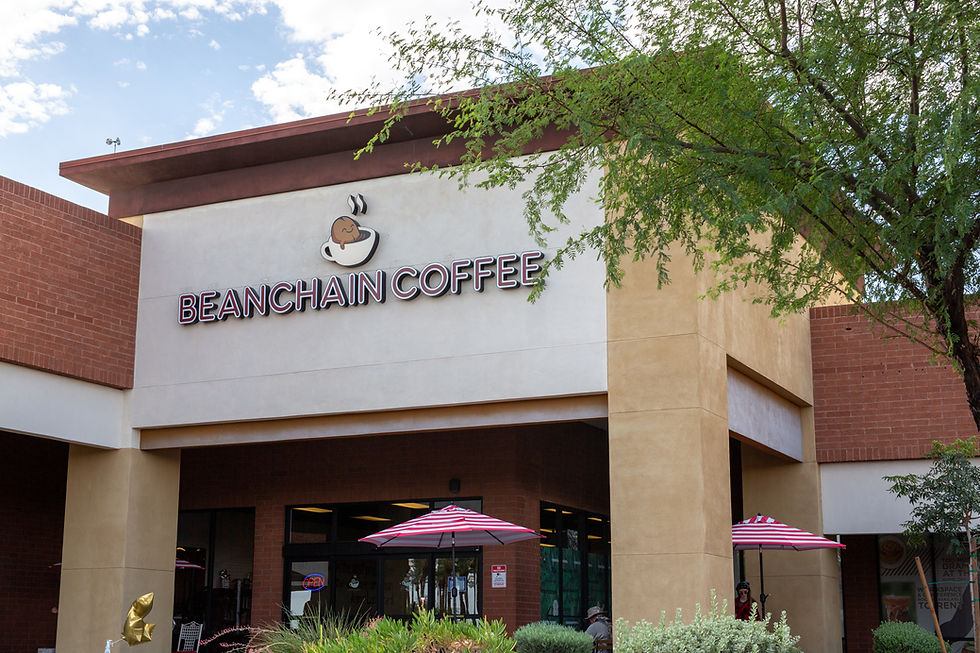Why We Started Beanchain
- David Baxter

- Jul 21, 2025
- 4 min read

It started with an accidental overdose. I was on my way to a new job at an Amazon warehouse when I found my mom. I had to call the paramedics, inform my sisters, and then—because I couldn’t afford not to—I went to work.
My mother was a kind and deeply resilient woman. Despite her own health issues, she made sure my sisters and I were housed, fed, and in school. She worked hard and studied even harder, with the goal of becoming an accountant. She never got the chance.
My father was brilliant—an inventor and entrepreneur who ran a pillow company and designed everything from household gadgets to industrial tools. After the divorce, something in him shifted. He became angrier, more isolated. I chose to live with him so he wouldn’t be alone, and I watched someone I loved become slowly consumed by frustration, pride, and loneliness. He measured success in wealth, not well-being. When he was diagnosed with stage 4 pancreatic cancer, it was already too late. He’d refused to see a doctor—because saving money always came first.
By then, I had dropped out of college. I couldn’t afford to keep going. My sisters and I were on our own. I took whatever jobs I could find: cab driver, barista, gym attendant, call center agent, debt collector, security guard. Sometimes two at once. But even working constantly, I couldn’t cover the basics. I often had to choose between meals and asthma medication.
In the background of all this, I’d always been interested in web development. My local community college didn’t offer it, but I taught myself what I could on the side.
Then I got fired. I was working a call center job at Weebly and left early one day because I felt so sick I wasn’t sure I could make it home on my bike. That moment broke something in me. I realized the system I was trying so hard to succeed in wasn't built for people like me to win—at least not by playing fair. I did the math in my head and knew: I could never afford to go back to school, get the right degree, and start a career before I was too old for it to matter.
So I rewrote my own rules. I lied on my resume. I said I was already a developer. One week later, I got my first job as a junior software engineer, making $60k a year. I was 26.
That experience changed me—but it also made me angry. I don’t want my kids to grow up in a world where the only way to move forward is to cheat a system that was never designed for them in the first place. I don’t want anyone to lose their family, their health, or their future just because they didn’t have enough money. We can build something better—for ourselves, and for the next generation.
Beanchain is the first step.
My wife Shannon and I created Beanchain as a living experiment in economic justice. It’s a worker-directed company—meaning we’re building a workplace where decisions are shared, wages are fair, and power is distributed. We’ve built in casual voting, open forums, and teams that allow people to earn more by taking on more responsibility. We’re moving steadily toward a living wage and a path to cooperative ownership.
Beanchain is also a lab. We’re testing tools for worker direction while building a roadmap to full cooperative transition. Once the model is refined, we’ll create more Beanchains—each supported by a nonprofit network that provides shared services like IT, legal, HR, and marketing. That way, profit and power stay local—in the hands of workers and the communities they serve.
Eventually, we want to open that network to other small businesses. Imagine worker-directed companies of all kinds, connected through cooperative infrastructure, benefiting from the same economies of scale that corporations rely on—without giving up their values or autonomy.
In a system like that, people can grow and succeed on merit. Families can live with dignity. Kids can dream bigger than survival. We think it's possible.
Shannon and I have spent the last six years giving everything we have to this mission. We poured in our savings, our energy, and our hearts. We built the team. We built the tools. We built the Beanchain.

We started with a cart out front while the space was still under construction. We made mistakes, learned fast, and kept going. We’ve now been open for over two years—and we couldn’t imagine our lives without Beanchain and the good it brings.
Working together so closely for so long—10-hour days, five years straight, and 24 hours a day together through COVID—taught us a lot. We had to grow not just as partners, but as communicators. That’s where the Solution Seeking System came from: it’s modeled after the way Shannon and I learned to talk to each other—with vulnerability, trust, and a commitment to solve instead of win. It’s now a tool we teach and use across our business.
We leaned into the hard parts—personally and professionally—to become stronger together and to build the world we want to see.








Comments